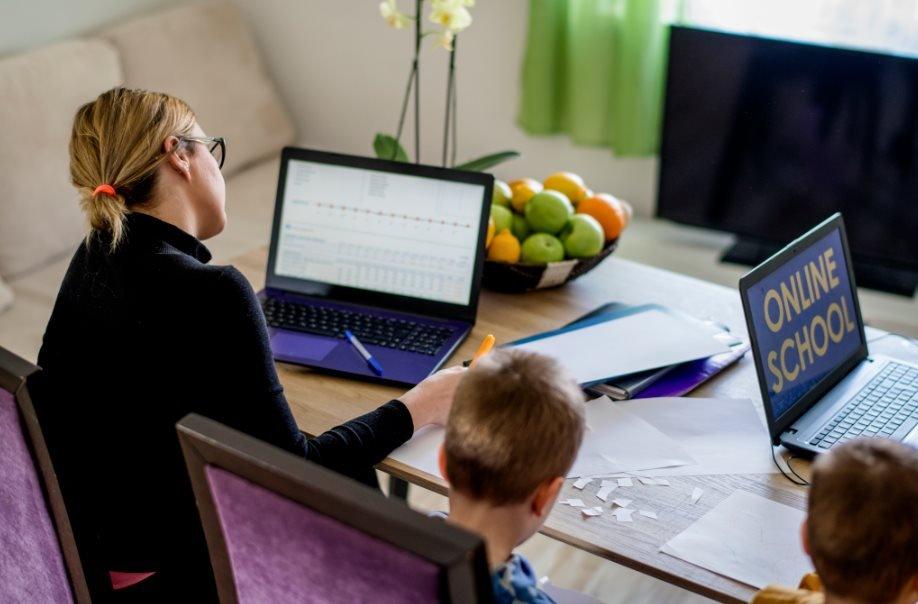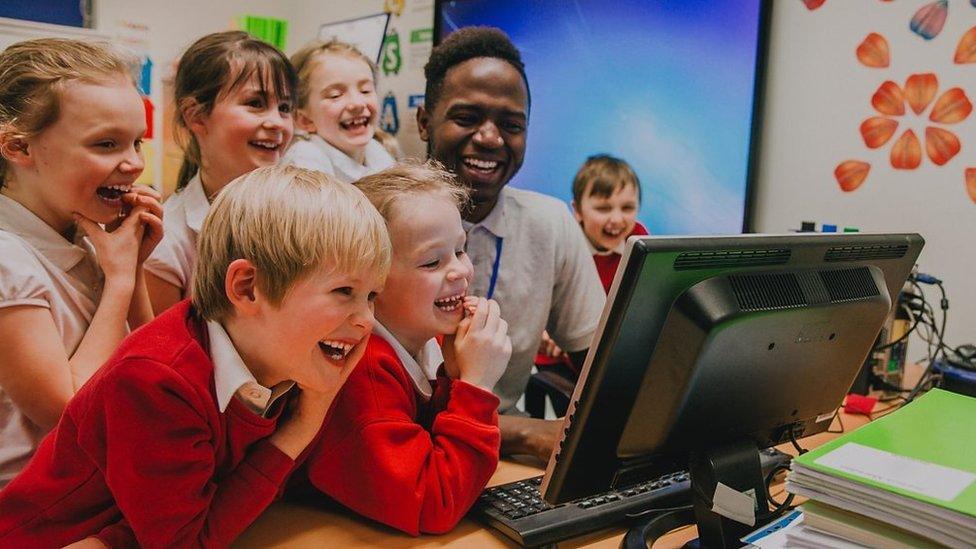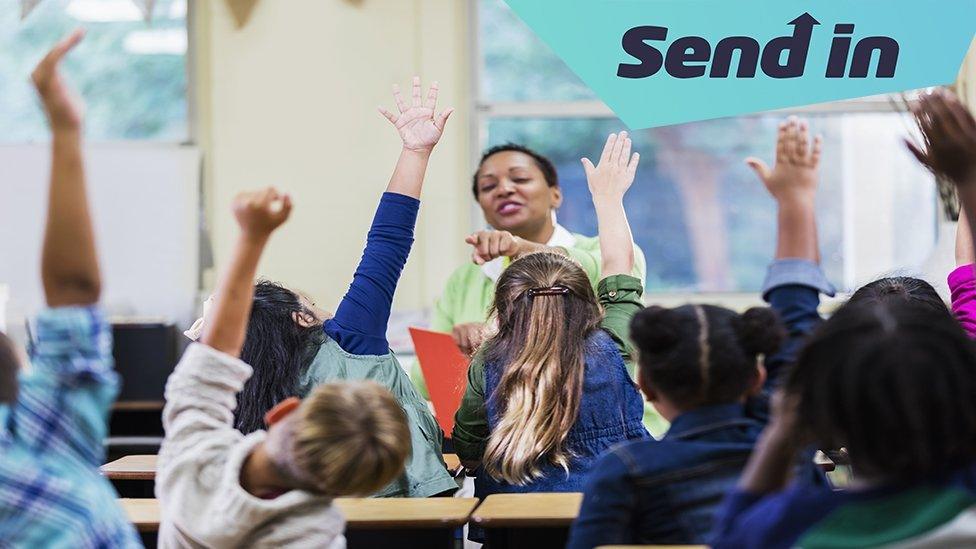Coronavirus: Better-off households do more home-schooling says a new study
- Published

More than half of parents said they were finding it hard to support their children learning at home.
It has been over two months since schools around the UK were forced to closed to help reduce the spread of the coronavirus.
Many of you will have been doing school work at the kitchen table, possibly with help from the grown-ups in your house, or via video and online learning.
But some education experts are worried about children being left behind.
It's one of the reasons why the government wants schools in England to start opening again from 1 June.
Teachers say they also want to go back into the classroom - but many of them want to know that it is safe to do so first.
New research suggests that children from wealthier families are spending more time on schoolwork during the lockdown than those from less well-off backgrounds.
A survey of more than 4,000 families found that primary and secondary students are spending, on average, five hours a day learning.
But, it found children in families where parents earn more spend around six hours on school work, while the lower-earning households spend approximately four and a half hours per day doing home-learning.
The research was carried out by the Institute of Fiscal Studies, which is an organisation that studies everything to do with the economy.
A possible reason for the difference in time spent on school work, is that richer families are more likely to have access to computers and study areas.
Over the 34 days that schools will be closed, students in the best-off families could have done more than seven full school days' worth of extra learning time.
Although seven days doesn't seem like a long time, authorities are worried this gap in learning could have a big impact on children's' achievements in the long term.
This is because there is evidence that just one extra hour a week of instructional time can significantly help children to achieve more.
The government has said it will do whatever it can to ensure no child falls behind.
- Published18 May 2020

- Published17 May 2020

- Published13 May 2020

